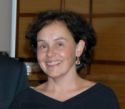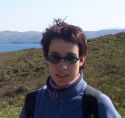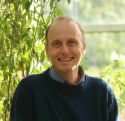Invited speakers
We are proud to announce the following confirmed invited speakers:
Martyn Kelly
‘Data rich, information poor? 10 years of the EU Water Framework Directive in Europe’
 | Martyn Kelly has been an environmental consultant for 17 years, following a PhD at the University of Durham (UK) and two years as a university lecturer in Nigeria. The main focus of his research over this time has been the use of algae to support decision-making, particularly in relation to implementation of EU Directives. He coordinated the drafting of CEN standards on diatom sampling and analysis, and the EU’s phytobenthos intercalibration exercises for rivers and lakes. In addition to consultancy, he teaches part-time at the University of Newcastle. |
www.bowburn-consultancy.co.uk
www.martyn-kelly.co.uk
Peter Kroth
‘Aspects of Diatom Metabolism’
 | Peter Kroth has studied Biology at the University of Düsseldorf (Germany) and obtained his doctoral thesis in 1993 in the lab of Prof. Heinrich Strotmann in Düsseldorf characterizing the genes of chloroplast ATPase in diatoms. During his post-doc he became interested in protein targeting processes in diatoms, and developed genetic transformation protocols for the diatom Phaeodactylum tricornutum in the lab of Arthur Grossman (Carnegie Institute for Plant Biology, Stanford, USA). Since 2001 he is full Professor in Plant Ecophysiology at the University of Konstanz (Germany). He is interested in biochemical, physiological, genetic and evolutionary aspects of algae, especially of diatoms. He has worked on intracellular transport processes of proteins and metabolites across the four plastid envelope membranes of diatoms, genetic transformation of diatoms, the regulation of photosynthesis in diatoms and the interactions of bacteria and diatoms in photoautotrophic biofilms. |
www.uni-konstanz.de/algae
Isabelle Lavoie
‘Diatom-based biomonitoring in Canada: reflections on 10 years of development, improvements and persuasion’
 | Isabelle Lavoie is a young stream ecologist best known for the development and implementation of the Eastern Canadian Diatom Index (IDEC). She earned a PhD from the Watershed Ecosystems graduate program at Trent University (Ontario, Canada). Her post-doctoral research focuses on studying past stream water quality using diatom communities and assessing the effects of metal contamination from abandoned mine tailings on periphyton. She is currently working as a research associate at the Institut National de la Recherche Scientifique (INRS) in Quebec (Canada), where she is perusing her research interests in diatom-based monitoring by continuously improving and promoting the IDEC. Isabelle also teaches statistics in the Department of Biology at Laval University. |
Marina Montresor
‘A multifaceted and integrated approach to the study of marine planktonic diatoms’
 | Marina Montresor is a senior scientist at the Stazione Zoologica Anton Dohrn, Napoli (Italy), where she coordinates the Department of Ecology and Evolution of Plankton. Her research interest includes taxonomy and ecology of marine phytoplankton, with special focus on the life strategies of protists and the characterization of their heteromorphic life cycles, and on understanding the factors that control transitions among different life cycle stages and phases. She is organizer of the ‘Advanced Phytoplankton Course: Taxonomy and Systematics’ and is member of the faculty of the PhD program in ‘Biology of the Algae’ at the University of Messina (Italy). She is member of the editorial boards of several journals, including Journal of Phycology, Phycologia and Protist. |
www.szn.it
Nicole Poulsen
‘Life in a glasshouse: from cell wall morphogenesis to nanotechnological applications’
 | Nicole Poulsen studied Botany at the University of Melbourne (Australia) where she obtained her PhD in 2001 in the lab of Dr. Rick Wetherbee characterizing the mechanism of diatom gliding. Since 2001 she has worked together with Professor Nils Kröger at the Universität Regensburg, Germany (2001-2004), Georgia Institute of Technology, USA (2005-2011) and since January 2012 she is now located at the B Cube: Center of Innovative Competence for Molecular Bioengineering at the TU Dresden (Germany). She is interested in the molecular basis of diatom cell wall formation, intracellular transport processes and diatom adhesion and motility. |
ww2.chemistry.gatech.edu/~kroeger/Kroeger/index.htm
www.bcube-dresden.de
Jeroen Raes
‘Metagenomics: from parts lists to ecology’
 | Jeroen Raes was awarded his PhD in the department of Plant Systems Biology in 2003 (UGent; Prof. Y. Van de Peer) and subsequently did a postdoc at the European Molecular Biology Laboratory (EMBL, Heidelberg, Germany; Dr. Peer Bork). Since 2009, he leads a lab at the Flemish Institute of Biotechnology (VIB) and the University of Brussels (VUB). His lab focuses on combining next-generation meta-omics technologies (metagenomics, metatranscriptomics) with dedicated computational biology techniques to investigate the biodiversity, variation and functioning of various ecosystems. He has a long track record in metagenomics data analysis and is involved in various large-scale collaborative projects such as Tara Oceans, Terragenome, the Human Microbiome Project and MetaHIT. He is associate editor for ISME journal, Scientific Reports (NPG), Marine Genomics and Genomics Insights. |
systemsbiology.vub.ac.be
Rosa Trobajo
‘Traditional taxonomy in the molecular age: controversies or synergies?’
 | Rosa Trobajo’s research focuses on the benthic diatoms of Mediterranean coastal lagoons and estuaries. She is particularly interested in the factors and processes affecting diatom communities and their distribution in these environments, and also in their use to track environmental changes. After obtaining her Ph.D. at the University of Girona in 2003 she spent two years as a Marie Curie post-doctoral fellow in the Natural History Museum of London (UK) with Dr. Eileen J. Cox where she was initiated in diatom experimental work. She is currently a researcher in the Aquatic Ecosystems group at the Institute for Food and Agricultural Research and Technology (IRTA) in Catalonia (Spain). Her research combines field work together with culture and molecular data in order to improve the taxonomy and to better understand the ecology of selected species that play a key role in shallow coastal systems. Her interests also include ecology and monitoring of rivers and, recently, exploration of the use of microalgae for bioenergy. |
Graham Underwood
‘Life on the edge: how intertidal benthic diatoms thrive in coastal environments and why we should care’
 | Graham is Professor of Marine and Freshwater Biology in the School of Biological Sciences at the University of Essex (UK). He studied Zoology with microbiology at the University of Reading, and carried out his PhD on freshwater grazer-macrophyte-epiphyte interactions at the University of Sussex. After a short period of postdoctoral research, working at Bristol University on microbial biostabilisation of intertidal mudflats in the Severn Estuary, he moved to Essex in 1992. His research interests lie in the areas of freshwater ecology and estuarine, coastal and shallow sea biology. A major focus is on the interactions between autotrophic (microalgae) and heterotrophic microbial activity and the role of dissolved organic carbon, nutrients, light, and spatial and temporal variability. A strong theme throughout his work has been to relate the biogeochemical functioning of microbial biofilms to their species composition (especially of diatoms), emphasising the importance of different species in responding to the environment, especially in the primary production, physiology and ecology of microphytobenthic diatoms. The majority of his work has been based in the U.K., but he has also carried out research in the Baltic, Mediterranean and South African environments, tropical systems in the Indo-pacific and the Bahamas, and more recently studying Antarctic and Arctic sea ice communities. |
www.essex.ac.uk/bs/staff/profile.aspx?ID=1255
Elie Verleyen
‘Diatom distributions in space and time – a case study from polar regions’
 | Elie Verleyen is a postdoctoral researcher at the laboratory of Protistology and Aquatic Ecology (Ghent University, Belgium) where he also earned his PhD. His research interests include microbial biodiversity, biogeography and macroecology, the response of aquatic ecosystems to climate changes, the paleoclimatological evolution of regions at the high latitudes in the southern hemisphere during the late Quaternary, and the role of the Antarctic Ice Sheets in postglacial sea level rise. |
www.PAE.Ugent.be
|